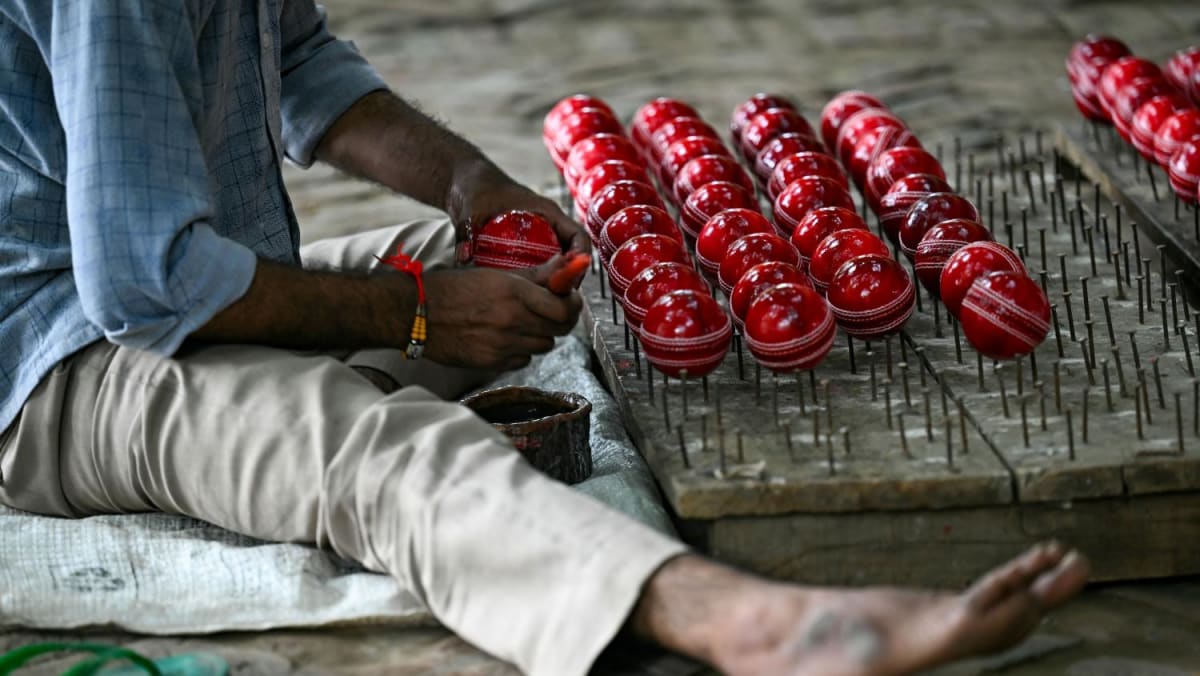
MEERUT (India) — Stitching together cricket balls is a wearisome task for leatherworker Bunty Sagar, whose labours are frowned upon by many fellow Indians even if he makes their favourite pastime possible.
In a nation where the majority Hindu faith views cows as sacred, Mr Sagar’s trade lies in the hands of those willing to handle their hides for long hours and little pay.
The work is tedious and repetitive, and its profitability has been threatened by the cow protection campaigns of Hindu activists seeking to end cattle slaughter.
Mr Sagar had hoped studying would lead him along a path to a different career but is resigned to his work after the early death of his father — also a lifelong leatherworker — left him the sole breadwinner.
“I don’t feel anything negative about the job I do,” the 32-year-old Hindu told AFP, sweating in a small and stifling production room alongside half a dozen others, moulding leather to the ball’s solid cork centre.
“If I were to feel bad about my job, what would we eat?”
Its success rests on abundant and cheap labour that has reduced the incentive for more mechanised processes used in other countries.
“It is the workforce that brings the ball-making process to a beautiful conclusion,” factory owner Bhupender Singh told AFP.
‘LIKE A GOD’
That labour has traditionally been the realm of those who belong to the Jatav community, which sits at the bottom of the millennia-old caste hierarchy that divides Hindus by function and social standing.
Jatavs are a sizeable number of India’s 200-million-strong Dalit castes once subject to the discriminatory practice of “untouchability”.
“People are in need of income and are willing to work, especially since job opportunities are limited in this area”, Mr Singh said.
RED LINES
Meerut has been the principal hub for Indian sports goods since soon after independence from British colonial rule in 1947.
Back then, skilled leatherworkers fled the city of Sialkot in modern-day Pakistan during the deadly partition of the subcontinent along religious lines.
Mr Singh’s business was established by his grandfather and he had hoped to expand its operations, but India’s political climate has made life tough for the industry.